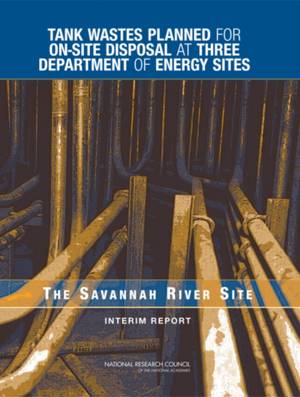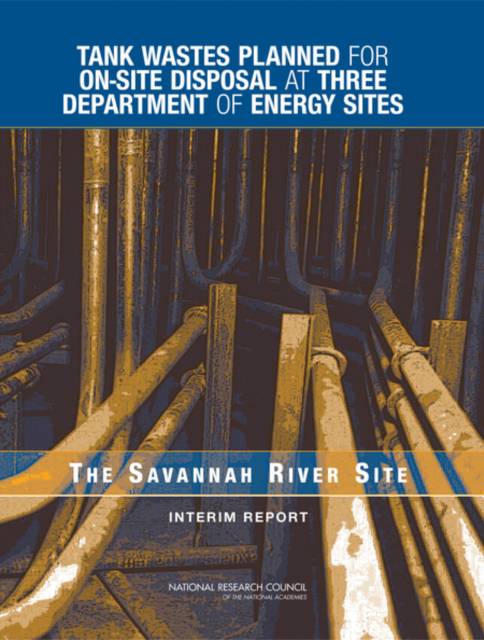
- Afhalen na 1 uur in een winkel met voorraad
- Gratis thuislevering in België vanaf € 30
- Ruim aanbod met 7 miljoen producten
- Afhalen na 1 uur in een winkel met voorraad
- Gratis thuislevering in België vanaf € 30
- Ruim aanbod met 7 miljoen producten
Zoeken
Tank Wastes Planned for On-Site Disposal at Three Department of Energy Sites
The Savannah River Site: Interim Report
National Research Council, Division on Earth and Life Studies, Nuclear and Radiation Studies Board, Committee on the Management of Certain Radioactive Waste Streams
Paperback | Engels
€ 42,95
+ 85 punten
Omschrijving
In response to a request from Congress, the U.S. Department of Energy (DOE) asked the National Academies to evaluate its plans for managing radioactive wastes from spent nuclear fuel at sites in Idaho, South Carolina, and Washington. This interim report evaluates storage facilities at the Savannah River Site in South Carolina, with a particular focus on plans to seal the tanks with grouting. The report finds that tanks at the site do not necessarily need to be sealed shut as soon as the bulk of the waste has been removed. Postponing permanent closure buys more time for the development and application of emerging technologies to remove and better immobilize residual waste, without increasing risks to the environment or delaying final closure of the "tank farms." The report also recommends alternatives to address the lack of tank space at the site, as well as the need for focused R&D activities to reduce the amount and improve the immobilization of residual waste in the tanks and to test some of the assumptions used in evaulating long-term risks at the site.
Specificaties
Betrokkenen
- Auteur(s):
- Uitgeverij:
Inhoud
- Aantal bladzijden:
- 88
- Taal:
- Engels
Eigenschappen
- Productcode (EAN):
- 9780309096935
- Verschijningsdatum:
- 1/08/2005
- Uitvoering:
- Paperback
- Formaat:
- Trade paperback (VS)
- Afmetingen:
- 216 mm x 279 mm
- Gewicht:
- 301 g

Alleen bij Standaard Boekhandel
+ 85 punten op je klantenkaart van Standaard Boekhandel
Beoordelingen
We publiceren alleen reviews die voldoen aan de voorwaarden voor reviews. Bekijk onze voorwaarden voor reviews.








